One week after the Obama administration's veto of an import ban affecting Apple helped to send the company's stock up $6.9 billion, news of an import ban affecting Samsung has again helped Apple's market value gain ground, this time by almost twice as much.
Source: Google Finance
Investors encouraged by news of the decision to ban certain infringing Samsung models (which was issued by the U.S. International Trade Commission last Friday after the market closed) sent Apple's stock up $12.91 (2.8 percent) to close at $467 today.
The ban won't take affect for at least 60 days, and could theoretically be vetoed as well, although the circumstances in the two cases are not closely related and ITC ban reversals are extremely rare.
Last Monday, news of the veto announced over the previous weekend sent Apple's stock up $6.91 or 1.49 percent, enough to raise Apple's market capitalization by just over $6.9 billion, a figure as large as Apple's most recently reported quarterly net income.
The Wall Street Journal had called attention to Samsung's corresponding stock price drop earlier in the day, as Asian investors reacted to the news while much of California was still asleep. Over the past week, Apple's stock gave up Monday's gains, leaving it almost exactly in the same position it was in at the start of the previous week.
Identical bans, different as night and day
While both of the ITC's import ban decisions, first affecting Apple and now Samsung, were related to patent infringement claims, the nature of the patents involved, and the stated intent of the patent holders in pursuing the bans are vastly different.
Samsung's accusations of patent infringement against Apple concerned a patent that Judge Lucy Koh had already ruled Apple did not infringe upon last summer in a summary judgement.
Additionally, Samsung's patent ban only affected older iPhone 4 and iPad 2 models (and not Apple's newer devices that continue to use 3G UMTS) because the "infringement" Samsung claimed wasn't related to Apple's own software or designs, but rather alleged against technology within an Intel Infineon baseband processor Apple used (pictured below on the iPhone 4 logic board).
Intel licensed the technology from Samsung for resale, but Samsung claims that Intel's sale to Apple retroactively voided the agreement. Samsung also licensed the same patent portfolio to Qualcomm, the company that makes the baseband processors Apple's newer devices use. Samsung was not able to convince the ITC that its Qualcomm license could similarly be revoked in order to embroil Apple in an identical patent claim, however.
The controversial "Standards Essential Patent" was claimed to be necessary in delivering products compatible with 3G UMTS wireless networking, meaning that Apple purportedly wouldn't be able to design products without "infringing" upon Samsung's patented concept. As a component of such an industry standard, Samsung's patent was committed to FRAND (Fair, Reasonable and NonDiscriminatory) licensing rules.
For this reason, the Obama administration detailed that its veto decision was motivated by an effort to stop patent abusers from gaining "undue leverage" in similar cases, a ruling that not only benefitted Apple, but would also assist Samsung in parallel import ban cases being brought against it involving similar Standards Essential Patents, potentially even in cases that didn't specifically involve FRAND-licensing commitments.
Apple's invention patents
In contrast, Apple's patents involved the most recent import ban case involve novel technologies and designs Samsung could work around by simply developing its own original technologies.
A report by Florian Mueller of FOSS Patents details Apple's 'non standards essential' patent claims as involving:
U.S. Patent No. 7,479,949 describing (below) a "touch screen device, method, and graphical user interface for determining commands by applying heuristics," of which Mueller noted "Apple wanted to call 'the Jobs patent' in a trial in Judge Posner's court that never took place." and stated "this patent is under reexamination pressure; Apple also made headway with other multi-touch patents earlier this week when it won a remand to the ITC of its case against Google's Motorola Mobility."
U.S. Patent No. 7,912,501 describing (below) Apple's "audio I/O headset plug and plug detection circuitry."
To avoid the import ban, Samsung only has to develop products that don't infringe. As Mueller reported, "Samsung presented to the ITC products that it said (and Judge Pender agreed) don't infringe," adding, "If legality is so readily available, a veto [of the import ban] isn't warranted." Samsung's reference to "rectangles and rounded corners" is often repeated by the company and its supporters to minimize the company's patent infringements.
Rather than outlining its plans to release non-infringing products, Samsung issued a statement to The Verge saying, "Apple has been stopped from trying to use its overbroad design patents to achieve a monopoly on rectangles and rounded corners. The proper focus for the smartphone industry is not a global war in the courts, but fair competition in the marketplace. Samsung will continue to launch many innovative products and we have already taken measures to ensure that all of our products will continue to be available in the United States."
Samsung's reference to "rectangles and rounded corners" is often repeated by the company and its supporters to minimize the company's patent infringements documented in a series of global cases.
Apple issued a less specific statement referencing only Samsung's parallel losses in various jurisdictions, saying, "with today's decision, the ITC has joined courts around the world in Japan, Korea, Germany, Netherlands and California by standing up for innovation and rejecting Samsung's blatant copying of Apple's products. Protecting real innovation is what the patent system should be about."
 Daniel Eran Dilger
Daniel Eran Dilger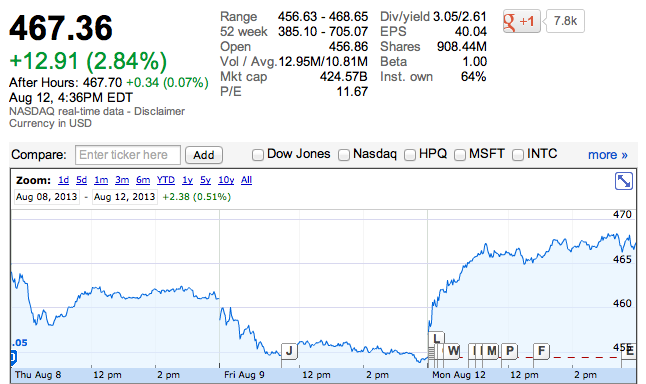

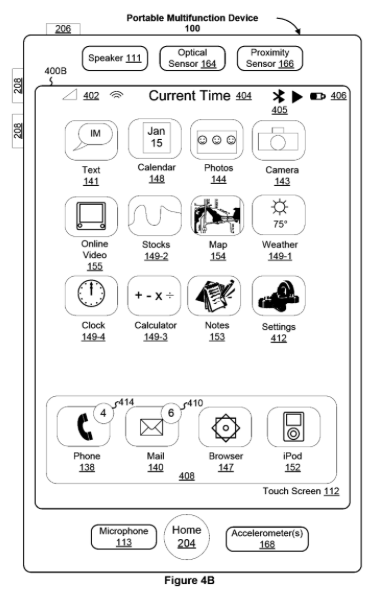
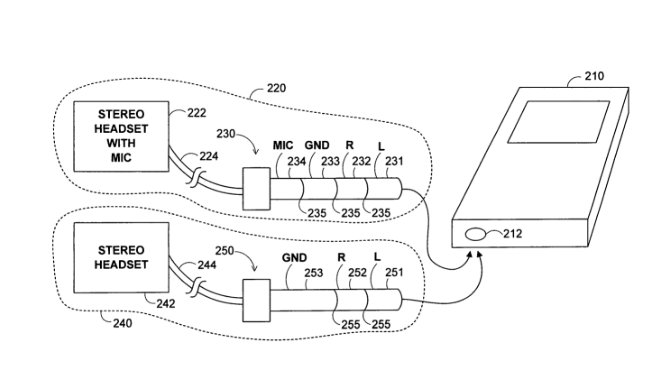














 AppleInsider Staff
AppleInsider Staff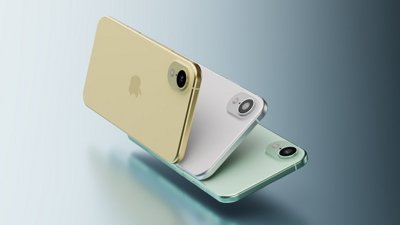
 Malcolm Owen
Malcolm Owen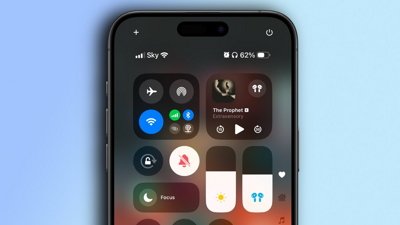
 Oliver Haslam
Oliver Haslam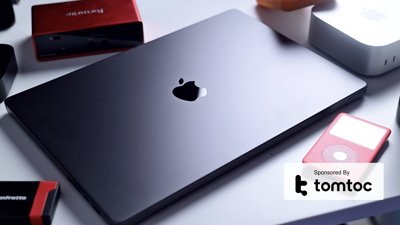
 Andrew O'Hara
Andrew O'Hara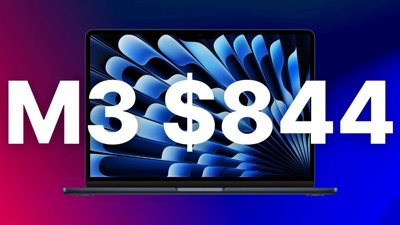
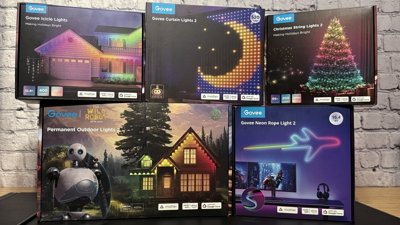
 Wesley Hilliard
Wesley Hilliard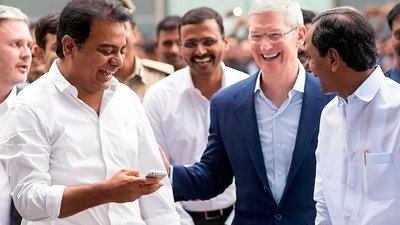
 William Gallagher
William Gallagher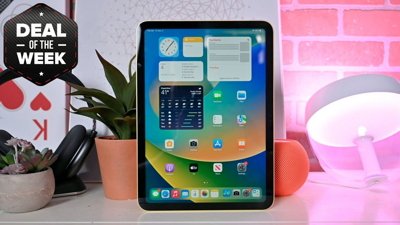
 Christine McKee
Christine McKee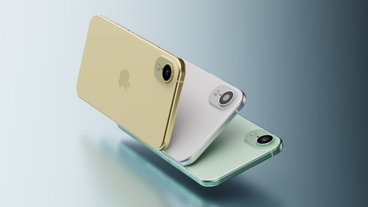
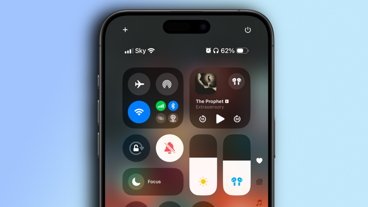
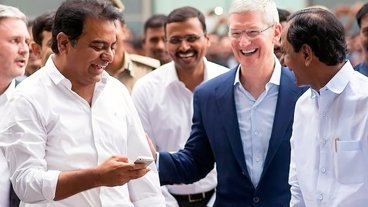






29 Comments
Not to mention news of New Iphone announcement
I bet the stock spike today was the result of the 9/10 iPhone event date being leaked and not because of the patent decision The stock was flat in the after the patent announcement Friday
Yeah who knew Apple was going to release a new iPhone?
Sorry I don't see the correlation. As others have said, if anything the stock is up because of the rumored iPhone announcement date in the WSJ.
Good to know the stock rises for silly reasons, same way it falls!